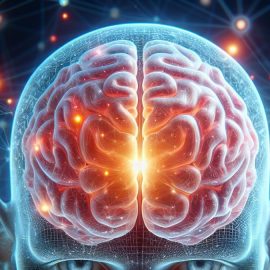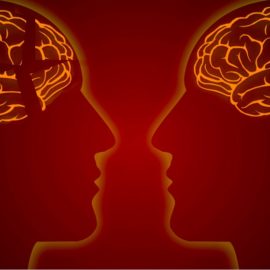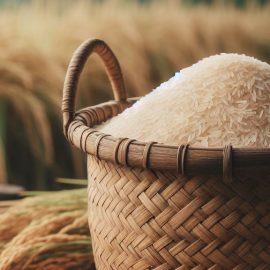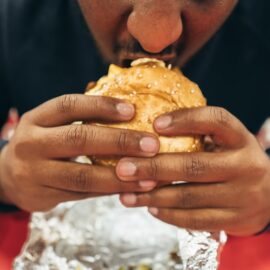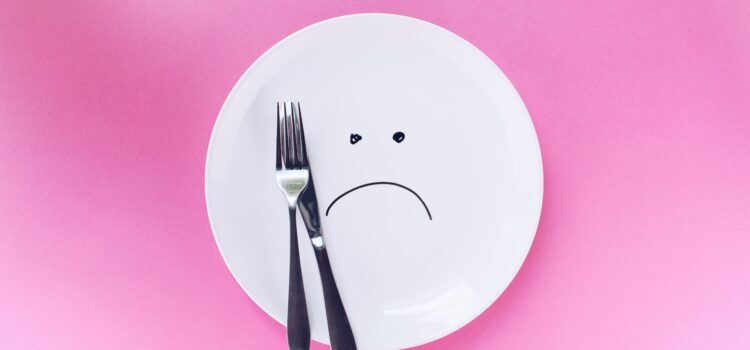
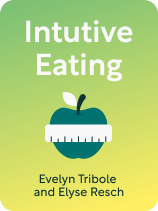
This article is an excerpt from the Shortform book guide to "Intuitive Eating" by Evelyn Tribole and Elyse Resch. Shortform has the world's best summaries and analyses of books you should be reading.
Like this article? Sign up for a free trial here.
Do diets make you fat? How does your body react to a restricted diet?
Food plays such a big part in our survival. If we cut ourselves off from enjoying food, our bodies will be tempted to eat more to survive.
Continue reading to learn why diets can end up making you gain weight, according to Intuitive Eating by Evelyn Tribole and Elyse Resch.
Diets Increase the Risk of Weight Gain
The more you yield to the pressure to control your weight through dieting, the more likely you are to gain weight in the long term, hence why some diets make you fat. According to Tribole and Resch, this is because diets create a state of deprivation that disrupts your body’s innate ability to maintain a healthy weight.
They explain that all diets restrict food intake, whether by limiting the types of food you eat, the amount of food you consume, or when you can consume food. Each time you restrict your food intake, your body detects a scarcity of food and interprets it as a threat to survival. In response, your body’s survival instinct, designed to safeguard energy reserves during times of famine, slows down your metabolism—meaning it stores more of what you eat as fat. Further, your body compels you to eat more by generating intense cravings that drive you to consume high-calorie foods.
(Shortform note: Gin Stephens (Fast. Feast. Repeat.) provides further insight into what’s happening in your body during periods of food restriction. Restricting food leads to metabolic adaptation: Your body makes three changes to cope with the perceived food shortage. First, it increases the release of the hunger hormone, ghrelin, making you crave more food. Second, it decreases the release of the satiety hormone, leptin, making you feel less satisfied with the food you consume. Third, it slows your metabolism, reducing your energy levels to “survive” until food becomes available again. If you continue to restrict food, your metabolism settles at this slower pace, leading to a downward spiral of increased hunger and a slower metabolism.)
As a result of these cravings, you may find yourself unable to stick to your diet and end up indulging in the very foods you tried to avoid. Or, after successfully completing your diet and achieving your weight goal, you might overeat the reintroduced foods to compensate for missing out on them. In both cases, it’s common to end up weighing more than you did before you started the diet. (Shortform note: Research backs this up. According to one set of UCLA studies, more than two years after dieting, 83% of people gained back more weight than they had lost. Five years after dieting, 50% of dieters weighed more than 11 pounds over their starting weight.)
For example, following a zero-carb diet triggers cravings for carb-heavy foods. The more you resist these cravings and deprive yourself, the stronger these cravings become. Each time you give in to these cravings, you’re likely to consume more carbs than you would normally eat or that your body needs, resulting in weight gain. Likewise, post-diet, the desire to make up for the carbs you missed out on during the restrictive phase may lead to overindulgence, causing you to consume more calories than your body requires.
(Shortform note: According to neurochemical research, you’re more likely to experience cravings for foods that contain salt, sugar, or fat than foods that don’t. This is due to an innate tendency to seek gratification. The flavors of these ingredients gratify you by stimulating the production of pleasurable neurochemicals in your brain. As a result, during a diet, restricting your intake of these foods creates withdrawal symptoms that make it challenging to abstain from them. And, after a diet, reintroducing these foods encourages your body to crave even more of them, regardless of how full you are.)

———End of Preview———
Like what you just read? Read the rest of the world's best book summary and analysis of Evelyn Tribole and Elyse Resch's "Intuitive Eating" at Shortform.
Here's what you'll find in our full Intuitive Eating summary:
- Why eating is often associated with guilt, shame, and fear
- How diets damage your relationship with food
- Ways to cultivate a healthy relationship with food

